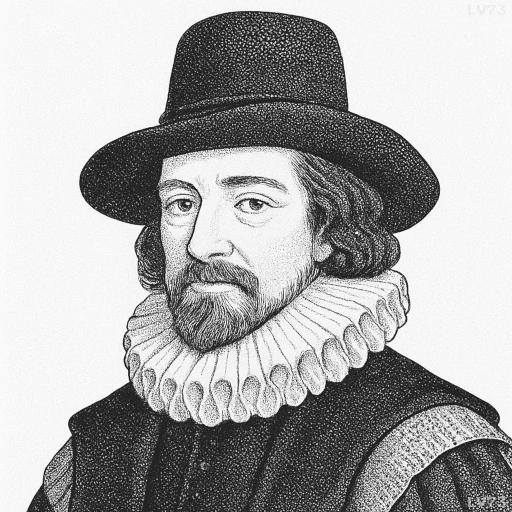“The best part of beauty is that which no picture can express.”

- January 22, 1561 – April 9, 1626
- Born in England
- Philosopher, theologian, jurist, politician, aristocrat
table of contents
Quote
“The best part of beauty is that which no picture can express.”
Explanation
In this quote, Francis Bacon suggests that the most profound and valuable aspect of beauty cannot be captured by visual representation alone. While art and pictures can convey certain aspects of beauty, Bacon believes that the essence of beauty—whether in a person, nature, or an experience—goes beyond what can be seen or portrayed. This deeper beauty is more than just appearance; it is something intangible, emotional, or spiritual that cannot be fully captured by images or even words. The quote highlights the limitations of external expressions of beauty and suggests that its most meaningful qualities exist on a level that transcends the physical.
Bacon’s view aligns with the Renaissance understanding of beauty, where it was often seen as not just a physical attribute, but a holistic and multidimensional experience. The period celebrated beauty in its many forms, including the inner and moral qualities of a person, and the idea that true beauty involves more than meets the eye was a growing concept. Bacon, a philosopher who valued intellect and inner virtue, likely saw beauty as something that had deeper, more profound meanings beyond simple aesthetic appeal.
In modern times, this quote resonates with contemporary ideas about beauty, especially with the increasing recognition that true beauty cannot be reduced to physical appearance alone. Today, we often understand beauty as an inner quality, shaped by personality, character, and experiences, and it is widely accepted that true beauty is about how one feels, thinks, and behaves, rather than how one looks. Bacon’s insight reminds us that beauty is not just what can be seen but what is felt and experienced beyond the visual, giving us a broader, richer understanding of beauty in the world.
Would you like to share your impressions or related stories about this quote in the comments section?



